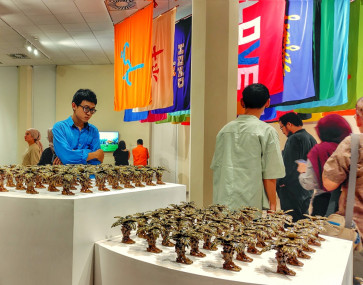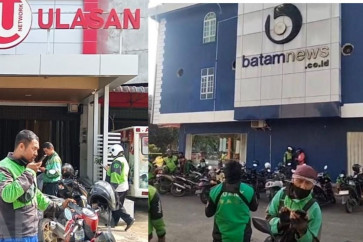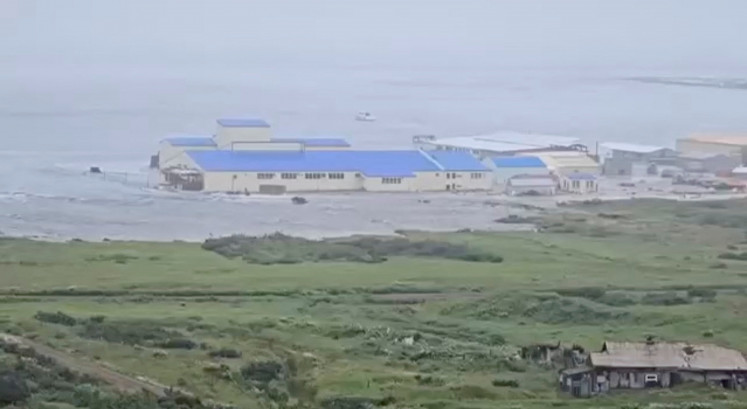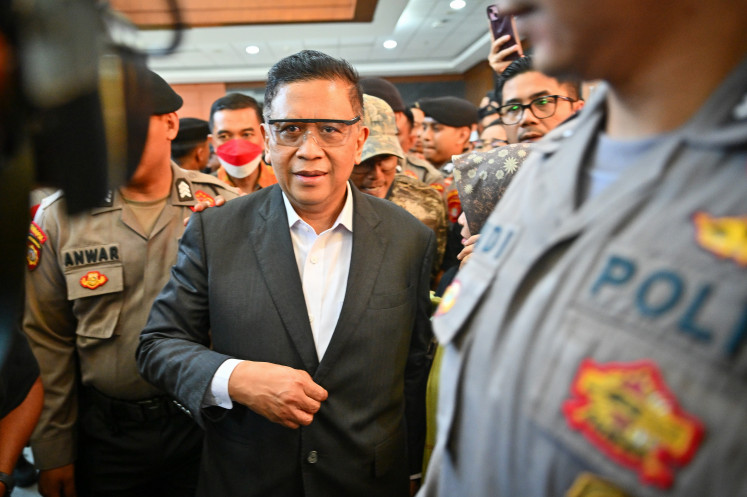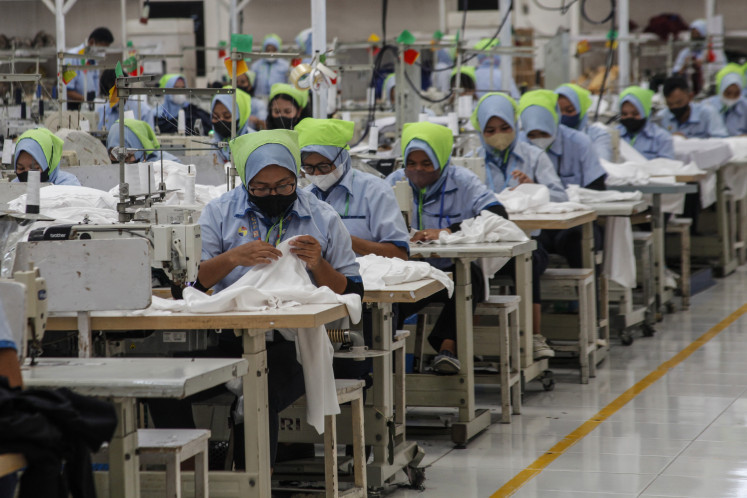Popular Reads
Top Results
Can't find what you're looking for?
View all search resultsPopular Reads
Top Results
Can't find what you're looking for?
View all search resultsMothers share tips to save water
Water woes: Activists stage a theatrical performance to commemorate World Water Day at the Hotel Indonesia traffic circle in Jakarta on Saturday
Change text size
Gift Premium Articles
to Anyone
W
span class="caption" style="width: 498px;">Water woes: Activists stage a theatrical performance to commemorate World Water Day at the Hotel Indonesia traffic circle in Jakarta on Saturday. (JP/Jerry Adiguna)
Mujiwati, 57, a housewife living in West Bekasi, West Java, told of how she had to wait overnight just to fill two buckets with clean water in the midst of a water shortage during last year's dry season.
'There was so little water coming out of the tap, it was basically letting out single drops of water every few second, my children and I had to take turns while waiting for the buckets to fill up,' she said.
The water they so patiently collected was then used to wash three days worth of dirty laundry from a family of seven, including her two grandchildren.
After she finished with the laundry, she then reused the water in the two buckets, one was mixed with detergent and the other mixed with fabric softener, to clean her windows and mop the floor. 'Although I had to use fabric softener to clean my floor, it actually smelled really good,' she said.
Martini, 43, another housewife in Bintara Jaya, Bekasi, also recalled an experience during the water shortage last year.
She said she turned off her fridge and collected the water that melted from the frost in her freezer.
'I used the water I collected from the fridge to wash the dishes and clean my shoes,' she said.
Apart from finding creative ways to gather water, she added that her family also made an effort to minimize water use whenever possible. 'For prayer ablutions, we made sure each family member only used one gayung [water dipper] full of water,' she said.
Even when the water supply had returned to normal, she said her family continued to save water because their experience during the water shortage had made them realize how valuable it was.
Mujiwati and Martini's stories are just two examples taken from 9,000 stories sent by various women on how to conserve water in a competition held by Unilever Indonesia's fabric softener product, Molto, on World Water Day, which falls on March 22 every year.
Besides the housewives, a mother, who is also an environmental activist and TV presenter, Riyanni Djangkaru, said that she and her family rewarded their children for saving water.
'Everyday my son and his cousins use two gayung each to wash up. If they can stick to that and not waste any additional water during the week, then at the end of the week, we let them play in a half-filled bathtub,' she said.
By doing so, Riyanni said, his son, Brahman Ahmad Syailendra, learned to value water.
She said her grandparents were the first ones to teach her how to bathe using only two gayung. 'We would use a washcloth to soap ourselves and then to wash the soap off,' she said.
There was a period where she stopped using the water technique but when her son was born in 2004 she started do it again.
'When my siblings and I had children, my mother reminded us about teaching our children about the value of water. So we started the water reward system,' she said.
Water specialist from the University of Indonesia (UI) Firdaus Ali said that housewives and mothers who preserved water gave major contribution to the city.
'Household water consumption makes up 84 percent of Jakarta's total consumption, while industrial and commercial use make up the remaining 16 percent ,' he said.
On the other hand, he said, only 38 percent of the residents in Jakarta are served by the tap water companies.
He also commended housewives who reuse water after doing their laundry.
'The water can be used to clean floors or cars, and after that [the women] can reuse it again to water plants,' he said.
According to Firdaus, soap and detergent have nitrogen and phosphor, which fertilize plants. (nai)


